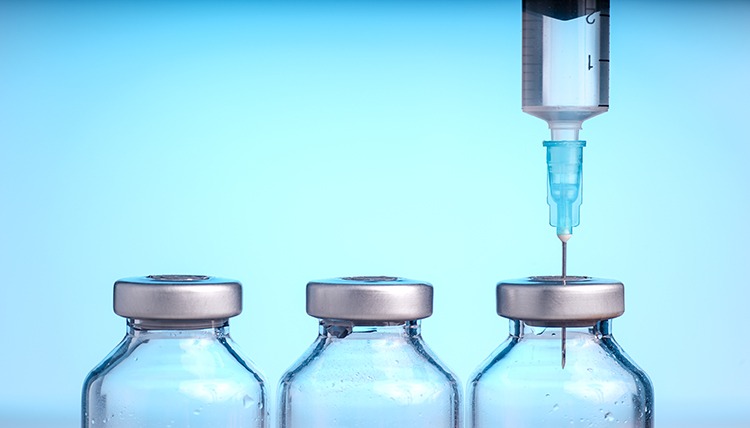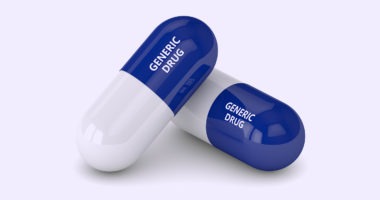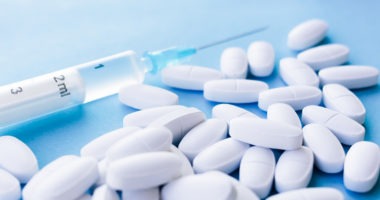FDA Updates Investigations into Impurities in APIs
Earlier this month, FDA released results from its ongoing investigations of nitrosamine impurities in certain APIs, most recently ranitidine, and earlier “sartan”-containing APIs. What did the FDA find, and does it impact regulatory testing requirements for other APIs?
NDMA impurities in ranitidine
Earlier this year (September 2019), the US Food and Drug Administration (FDA) reported that it found that some medicines with the active pharmaceutical ingredient (API), ranitidine, a H2 (histamine-2) blocker used in over-the-counter and prescription drugs to decrease the amount of acid created by the stomach, contained the nitrosamine impurity, N-nitrosodimethylamine (NDMA), which is classified as a probable human carcinogen. That marked a second API class with detection of nitrosamine impurities. Last year (2018), the FDA began investigating NDMA and other nitrosamine impurities, such as N‑nitrosodiethylamine (NDEA) and N-nitroso-N-methyl-4-aminobutyric acid (NMBA), which are also classified as probable human carcinogens and that were detected in some blood-pressure and heart-failure medicines, specifically angiotensin II receptor blockers in “sartan”-containing drugs. This issue of nitrosamine impurities in sartan-containing drugs first surfaced in the summer of 2018, which led to company recalls and/or further investigation by both the FDA and European Medicines Agency (EMA) of drugs containing valsartan and other drugs with “sartan” APIs, including candesartan, irbesartan, losartan, and olmesartan.
Earlier this month (November 2019), Janet Woodcock, the FDA’s Director for the Center for Drug Evaluation and Research (CDER), provided an update of CDER’s ongoing investigation into impurities in ranitidine. The FDA has set the acceptable daily intake limit for NDMA at 0.096 micrograms or 0.32 ppm for ranitidine. Although several manufacturers have already recalled ranitidine voluntarily, FDA says it will recommend recalls to manufacturers with NDMA levels above the acceptable daily intake limit.
In its update, the FDA outlined testing methods to be used for detecting NDMA impurities in ranitidine. Since gas chromatography-based methods had been observed to elevate NDMA levels in tested materials, an alternative method that prevented the degradation of ranitidine and the subsequent formation of NDMA was needed. The FDA developed and validated the use of a liquid chromatography with a high-resolution mass spectrometry (LC-HRMS) method to measure the levels of NDMA in ranitidine drug substances and drug products. As an alternative method, the FDA developed a liquid chromatography-tandem mass spectrometry (LC-MS/MS) method for the determination of NDMA in ranitidine drug substances and drug products. This LC-MS method is based on a triple quadrupole MS platform that is more widely available than the LC-HRMS platform. These FDA-published testing methods provide an option for regulators and industry to detect nitrosamine impurities in ranitidine drug substances and drug products. The FDA says that these methods should be validated by the user if the resulting data are used to support a required quality assessment of the API or drug product, or if the results are used in a regulatory submission.
The FDA also developed a simulated gastric fluid (SGF) model to be used with the LC-MS testing method to estimate the biological significance of in vitro findings. The SGF and simulated intestinal fluid (SIF) models are intended to detect the formation of NDMA in systems that approximate the stomach and intestinal fluids, respectively. In applying this method in the products tested, the FDA said that the results of these tests showed no additional NDMA generated in the stomach.
The FDA says it continues to investigate the presence of NDMA in ranitidine and that it is now aware of NDMA in nizatidine, which is chemically similar to ranitidine. Both medicines are H2 blockers which decrease the amount of acid in the stomach. FDA has identified NDMA in ranitidine and nizatidine APIs and finished drugs.
The FDA posted its laboratory results showing NDMA levels in all ranitidine and nizatidine samples it tested, including APIs and finished drugs, which included tablets and syrup. NDMA was present in all samples tested. Testing of ranitidine for injection is still ongoing by the FDA.
NDMA estimated risk and implications for drug manufacturers
In its testing, the FDA has determined that the levels of NDMA in ranitidine and nizatidine are similar to the levels that would be expected after eating common foods, such as grilled or smoked meats. “Through our testing so far, we have found levels of NDMA in ranitidine that are similar to the levels you would expect to be exposed to if you ate common foods like grilled or smoked meats,” said Woodcock in a November 1, 2019 statement. “We also conducted tests that simulate what happens to ranitidine after it has been exposed to acid in the stomach with a normal diet and results of these tests indicate that NDMA is not formed through this process. Similarly, if ranitidine is exposed to a simulated small intestine environment, NDMA is not formed. However, we still must test the drugs in the human body to fully understand if ranitidine forms NDMA,” she said.
In her statement, Woodcock pointed out that although many of these levels of NDMA observed through FDA testing are much lower than the levels some third-party scientists first considered, some levels still exceed what the FDA considers acceptable for these medicines.
The FDA specifies that the calculated acceptable intake for NDMA in drugs is based on methods described in the 2018 guideline by the International Conference for Harmonization Technical Requirements for Pharmaceuticals for Human Use (ICH), M7 (R1), Assessment and Control of DNA Reactive (Mutagenic) Impurities in Pharmaceuticals to Limit Potential Carcinogenic Risk. The FDA says if the agency or manufacturers find NDMA levels above the acceptable limits (96 nanograms per day or 0.32 ppm), the agency is asking companies to voluntarily recall ranitidine. The FDA is also asking manufacturers to voluntarily recall nizatidine if they found NDMA above the acceptable daily intake level because it is chemically similar to ranitidine.
The FDA is also asking manufacturers to continue conducting their own laboratory testing to examine levels of NDMA in ranitidine and nizatidine as well as to send samples to the FDA to be tested by its scientists. Additionally, the FDA has requested that manufacturers of nizatidine test their drugs. The agency says it is still working with manufacturers to investigate the true source of NDMA and to understand the root cause of the low levels of NDMA present in the drugs.
Thus far (as of November 1, 2019), the FDA and industry testing of medicines in the histamine-2 (H2) blocker and proton pump inhibitor (PPI) classes has identified NDMA only in ranitidine and nizatidine. The FDA says its tests of samples alternatives, such as Pepcid (famotidine), Tagamet (cimetidine), Nexium (esomeprazole), Prevacid (lansoprazole) and Prilosec (omeprazole) show no NDMA impurities in these medicines.
Testing of other APIs
In her statement, Woodcock addressed testing of ranitidine and other older drugs. “We’ve been asked if testing methods have changed since these products were approved, and whether, in light of this situation, we should look at the safety of other older drugs,” said Woodcock in her November 1, 2019 statement. “Drug manufacturers and the FDA continually gain knowledge about drugs, which is why the FDA constantly evaluates quality and safety information as it is learned. As testing methods have become more sophisticated and sensitive, the FDA and industry can identify and mitigate previously unknown risks to patients. This is something we are thoroughly aware of, and we have ongoing assessment, surveillance, compliance and pharmaceutical quality efforts across every product area to work to ensure similar impurities can be kept out of our drug supply.”
Woodcock, however, emphasized that the FDA’s investigations are ongoing. “We know impurities in medicines are of great concern to patients and consumers who rely on safe and effective medicines approved by the FDA, and we are working with manufacturers and global regulators to provide clear and actionable information,” Woodcock said in the agency’s statement. “These investigations take time and do not provide instantaneous answers. The FDA is committed to sharing all findings when we have adequate understanding of the situation and of what actions should be taken. We will continue to work with drug manufacturers to ensure safe, effective, and high-quality drugs for the American public.”
Further ranitidine recalls
Following Woodcock’s statement, several other companies have announced voluntary recalls of ranitidine products. On November 12, 2019, the FDA noted two additional voluntary recalls of ranitidine. Amneal Pharmaceuticals is voluntarily recalling prescription ranitidine hydrochloride tablets (150 mg and 300 mg) and ranitidine syrup (15 mg/mL) for containing unacceptable levels of NDMA. American Health Packaging also voluntarily recalled eight lots of ranitidine syrup (150 mg/10 mL) liquid unit dose cups, manufactured by Lannett Company. On November 8, 2019, the FDA reported a voluntary recall of OTC ranitidine tablets (150 mg), prescription ranitidine capsules (150 mg and 300 mg) and ranitidine syrup (15 mg/mL) manufactured by Aurobindo Pharma USA for unacceptable levels of NDMA.
These recalls followed earlier ones in the US and reported by the FDA. In late October (2019), Perrigo Company voluntarily recalled OTC ranitidine tablets (all pack sizes) due to the potential of NDMA in the medicine. Novitium Pharma voluntarily recalled all unexpired quantities and lots of ranitidine hydrochloride capsules due to the potential of NDMA in the medicine. Lannett Company voluntarily recalled all unexpired lots of prescription ranitidine syrup (ranitidine oral solution, USP, 15 mg/mL) due to the presence of NDMA found in the drug. On October 23, 2019, the FDA reported that Dr. Reddy’s Laboratories was voluntarily recalling all prescription and OTC ranitidine tablets and capsules manufactured by the company. (The OTC medicines may be labeled by retailers such as Walgreens, Walmart, CVS, Target, and Kroger). Sanofi also voluntarily recalled OTC ranitidine due to possible NDMA contamination.
In late September (2019), the FDA reported the voluntary recall in the US of OTC ranitidine tablets (75 mg and 150 mg), labeled by Walgreens, Walmart, and Rite-Aid and manufactured by Apotex for potentially containing low levels of NDMA. Separately, Walgreens announced in early October that it was suspending the sale of all OTC ranitidine products in stores, clubs and online due to potentially low levels of NDMA, and CVS, a US-based pharmacy, announced in late September that it had suspended the sale of all Zantac brand and CVS Health brand ranitidine products until further notice as a precaution. Also, in late September, the FDA reported that Sandoz, part of Novartis, was voluntary recalling 14 lots of prescription ranitidine capsules in the US due to the detection of NDMA.
Outside the US, Teva announced in late October that it was recalling select ranitidine products in the UK. The recall included unexpired stock of ranitidine effervescent tablets in two dosing strengths: 150 micrograms and 300 mg and was done as a precautionary measure due to possible presence of NDMA
Last month (October 2019), GlaxoSmithKline (GSK) voluntarily recalled in the UK all unexpired stock of four Zantac prescription products: Zantac 150-mg/10-mL Syrup, Zantac 50-mg/2-mL injection, Zantac 150-mg tablets and Zantac 300-mg tablets. In late September, GSK reported that it made the decision to suspend the release, distribution and supply of all dose forms of ranitidine hydrochloride products to all markets, including India, as a precautionary action pending further investigation.
In addition to the FDA, the European Medicines Agency (EMA) is conducting its own investigation into nitrosamine impurities in ranitidine and other APIs. The EMA’s Committee for Medicinal Products for Human Use (CHMP) is requesting as a matter of precaution that marketing authorization holders for human medicines containing chemically synthesized active substances review their medicines for the possible presence of nitrosamines and test all products at risk. A notice to this effect was sent out to marketing authorization holders with information on the actions they should take. A questions-and-answers document was also made available on the EMA’s website. The EMA is advising companies that they should take into account the published guidance along with knowledge of the manufacturing processes for their products and all other relevant scientific evidence. The EMA says that although nitrosamines are not expected to form during the manufacture of the vast majority of medicines containing chemically synthesized active substances, it is important that all companies who have not already done so take appropriate precautionary measures, if necessary, in line with recommendations from its recently concluded review of sartans.






